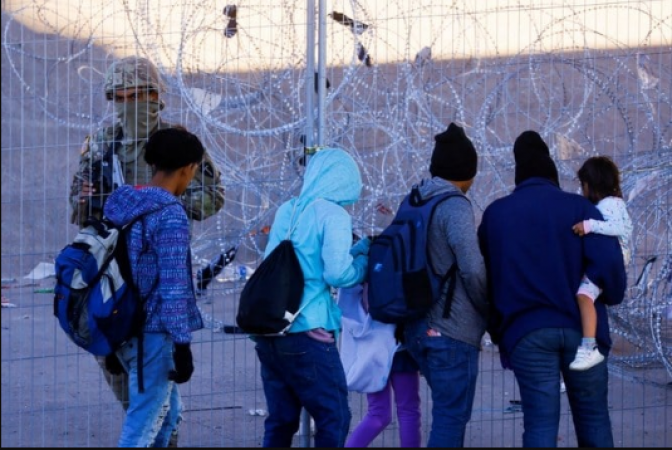
Washington: Immigration advocates' hopes that pandemic-era restrictions on immigration would be lifted this week have been dashed by a Supreme Court decision to keep them in place indefinitely.
The Supreme Court extended the temporary injunction that Chief Justice John Roberts issued last week in a decision on Tuesday. As per the court's direction, the matter will be argued in February and stayed till the judges reach their verdict.
At the start of the pandemic, the restrictions—often referred to as Title 42 in reference to the 1944 public health law—were enacted by then-President Donald Trump.
Also Read: Dmitry Medvedev: the Fourth Reich will be established in 2023
Under the sanctions, authorities have turned away most people applying for asylum at the border on grounds of preventing the spread of COVID-19 and have expelled 2.5 million asylum seekers from the United States.
Immigration advocates filed a lawsuit to end the policy because they claim it violates US and international obligations for people coming to the US to avoid persecution. As coronavirus treatment progresses, he has also claimed that the policy is no longer appropriate.
Thousands of migrants have gathered on the Mexican side of the border, filling shelters and worrying advocates who are trying to figure out how to get them care. This decision of the Supreme Court has come at a time when they are worried.
Lee Gelernt, an attorney with the American Civil Liberties Union, who has been arguing for an end to the use of Title 42, said, "We are very disappointed for all of the desperate asylum seekers who will continue to suffer because of Title 42, but We will continue to fight to eventually end the policy."
Additionally, courts should not be in the business of upholding administrative orders made to deal with one emergency merely because another emergency has gone unaddressed by elected officials. The judges wrote, "We are a court of law, not a policymaker of last resort.
A federal judge in November sided with the advocates after setting a December 21 deadline to phase out the policy. The Supreme Court heard an appeal from conservative-leaning states that warned that increased immigration would damage public services and result in an "unprecedented disaster" that the federal government was ill-prepared to handle.
Also Read: Ukraine must comply with Moscow's demands, or else our army will make the choice. Lavrov of Russia
Roberts, who handles urgent cases from federal courts in the capital, issued the adjournment to give the court more time to carefully consider the arguments made by both sides.
While requesting that the Supreme Court reject the states' request, the federal government acknowledged that a sudden lifting of restrictions would likely cause "disruption and a temporary increase in illegal border crossings".
The specific issue before the court is whether the states should be allowed to intervene in the lawsuit, which pitted advocates for immigrants against the federal government. This is a complex, largely procedural question.
After the Centers for Disease Control and Prevention announced in April that it was ending use of the policy, a similar group of states succeeded in getting a lower court order in a different court district blocking the end of the restrictions.
Also Read: APEC will spearhead the global movement for sustainable growth.
The states had not requested participation in that case prior to the judge's order in November in the advocates' lawsuit. However, they claim that they should be able to intervene because the administration has essentially given up on defending Title 42 policy. Although it has appealed the decision, the administration has not attempted to uphold Title 42 during the legal dispute.